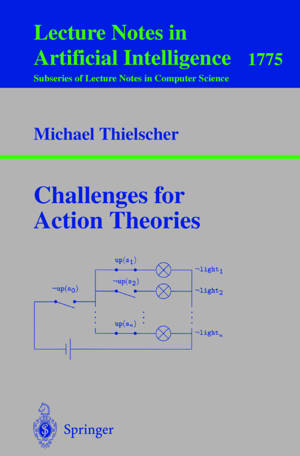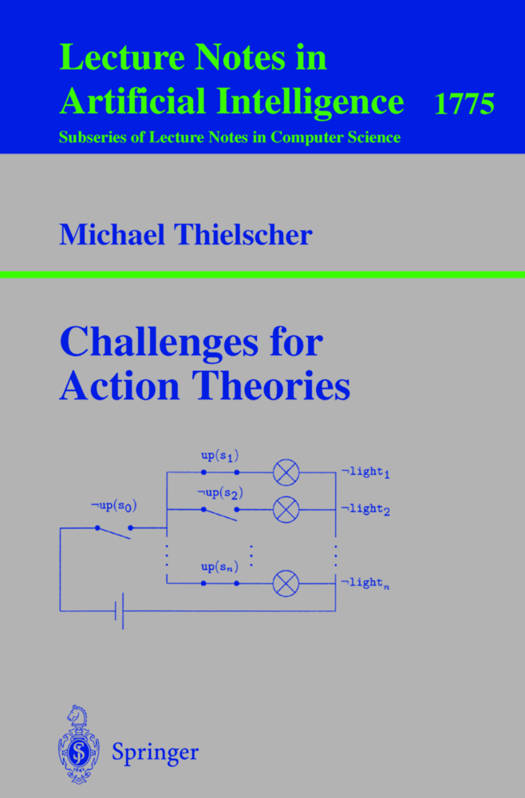
- Afhalen na 1 uur in een winkel met voorraad
- Gratis thuislevering in België vanaf € 30
- Ruim aanbod met 7 miljoen producten
- Afhalen na 1 uur in een winkel met voorraad
- Gratis thuislevering in België vanaf € 30
- Ruim aanbod met 7 miljoen producten
Zoeken
Challenges for Action Theories
Michael Thielscher
Paperback | Engels | Lecture Notes in Computer Science | Lecture Notes in Artificial Intelligence | nr. 1775
€ 52,95
+ 105 punten
Omschrijving
A logic-based approach to the design of computing systems would, undoubtedly, offer many advantages over the imperative paradigm most commonly applied so far for programming and hardware design and, consequently, logic, again and again, has been heralded as the basis for the next generation of computer systems. While logic and formal methods are indeed gaining ground in many areas of computer science and artificial intelligence the expected revolution has not yet happened. In this book the author offers a convincing solution to the ramification problem and qualification problem associated with the frame problem and thus contributes to a satisfactory solution of the core problem and related challenges. Thielscher bases his approach on the fluent calculus, a first-order Prolog-like formalism allowing for the description of actions and change.
Specificaties
Betrokkenen
- Auteur(s):
- Uitgeverij:
Inhoud
- Aantal bladzijden:
- 146
- Taal:
- Engels
- Reeks:
- Reeksnummer:
- nr. 1775
Eigenschappen
- Productcode (EAN):
- 9783540674559
- Verschijningsdatum:
- 16/04/2000
- Uitvoering:
- Paperback
- Formaat:
- Trade paperback (VS)
- Afmetingen:
- 156 mm x 234 mm
- Gewicht:
- 231 g

Alleen bij Standaard Boekhandel
+ 105 punten op je klantenkaart van Standaard Boekhandel
Beoordelingen
We publiceren alleen reviews die voldoen aan de voorwaarden voor reviews. Bekijk onze voorwaarden voor reviews.











